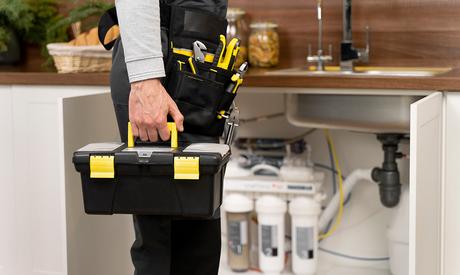A staple to maintaining a safe, viable residence is recognizing the various home maintenance facets, including regular plumbing inspections. A plumbing inspection is a comprehensive and in-depth analysis of a property's entire water system infrastructure, including pipes, drains, and fixtures. These meticulous checks ensure all systems operate smoothly and effectively, with the ultimate goal of warding off unwelcome breakdowns leading to costly repairs and potential health hazards.
This piece aims to delve deeper into the importance of these essential evaluations, including how frequently they should be undertaken for optimal home maintenance.

Why Plumbing Inspections Matter
Envisage daily life without running water for bathing, cleaning, cooking, or any other countless tasks that we often take for granted. Modern living is highly dependent on properly functioning plumbing systems, which underscore the essence of plumbing inspections.
Plumbing systems don't just deliver convenience; they are pivotal for health and sanitation. Negligence or lack of attention to these systems can culminate in severe complications. Inadequate plumbing can disrupt the water supply, hamper waste disposal, and potentially create a breeding ground for hazardous bacteria due to contaminated water.
Simultaneously, when plumbing-related predicaments are not promptly addressed, the financial ramifications can be considerable. Prolonged or unnoticed leaking pipes could eventually lead to substantial water damage or, in worst-case scenarios, structural damage to your property. There are ample real-world scenarios where long-term neglect of plumbing maintenance has led to major incidents, accentuating the necessity of regular, routine plumbing inspections.
Key Components of a Plumbing Inspection
A thorough plumbing inspection goes beyond a casual check of visible components. It is a systematic review of all aspects of your water system, such as pipes, drains, faucets, showers, bathtubs, toilets, and water heaters. Each component can promptly present issues if not properly maintained and monitored, such as subpar water flow from blocked pipes or leaks from worn-out faucets.
To do this efficiently, the use of advanced technology and methods has become crucial. Notably, remote plumbing inspections have become increasingly common. Specialised cameras allow plumbers to inspect obscure areas prone to potential issues without requiring dismantling of the entire system. Although onsite inspections can offer a more hands-on diagnosis, remote inspections are far less intrusive, making them a feasible alternative. Understanding the benefits and limitations of both is imperative to choose the right inspection approach for your property.
How Often Should you Schedule a Plumbing Inspection
Many homeowners wonder about the optimal frequency of plumbing inspections. While the recommended standard is a biennial examination by a professional, certain factors could demand more regular assessments.
Your household's size and the resulting plumbing usage can necessitate more frequent checks. Similarly, the age of your house plays a vital role - an older home may have antiquated or deteriorating plumbing infrastructure, which might present more unintentional issues. Notably, an unexpected increase in your water bill is often a symptom of underlying plumbing problems, signalling the need for an immediate inspection.
Importantly, seasonal changes also play a substantial role in how your plumbing functions. If you reside in a colder locale, winter preparations such as ensuring pipes are properly insulated can save considerable effort and expense in the long run.
Benefits of Regular Plumbing Inspections
Regular plumbing inspections serve as an operational safety net. They uncover potential issues early on, thereby preventing the occurrence of significant system failures and their associated costs. Proactive monitoring and minor repairs are cost-efficient compared to large-scale resolutions of major damages.
The financial advantages extend beyond repair savings. Regularly inspected systems invariably have longer functioning lifespans, reducing the need for early replacements. Functioning units contribute to the conservation of water, reflecting in lower utility bills.
Moreover, regular inspections contribute to a healthier and cleaner domestic environment. They ensure that your water supply remains contaminant-free and manage leaks that may encourage internal dampness, mould growth or structural damage.
Choosing a Reliable Plumbing Inspection Service
Selecting a reliable plumbing inspection service warrants careful thought and scrutiny. It is crucial that the chosen service provider is licensed, insured, experienced, and capable of handling a range of plumbing-related issues. Establishing the exact scope of the service, the warranty provision offered, and emergency service availability should form an essential part of this decision-making process.
Always take time to read through previous customer reviews and gather referrals from acquaintances - these considerations drastically support the credibility check of your potential selection. Importantly, be sure to contact a licensed plumber to confirm their professional qualifications.
The importance of scheduling routine plumbing inspections cannot be overstated. Regular assessments can ward off the looming probabilities of potentially expensive repair works, unforeseen health risks, and substantial convenience interruption. Securing a quality, reliable plumbing service ensures excellent water system performance, and consequently, peace of mind, making them an indispensable aspect of everyday living.
